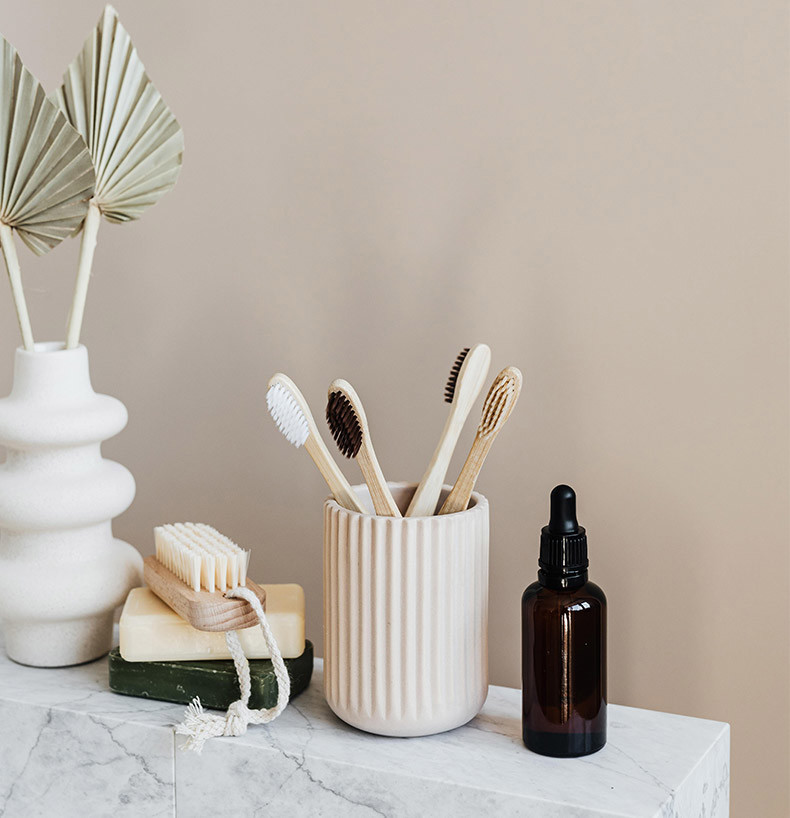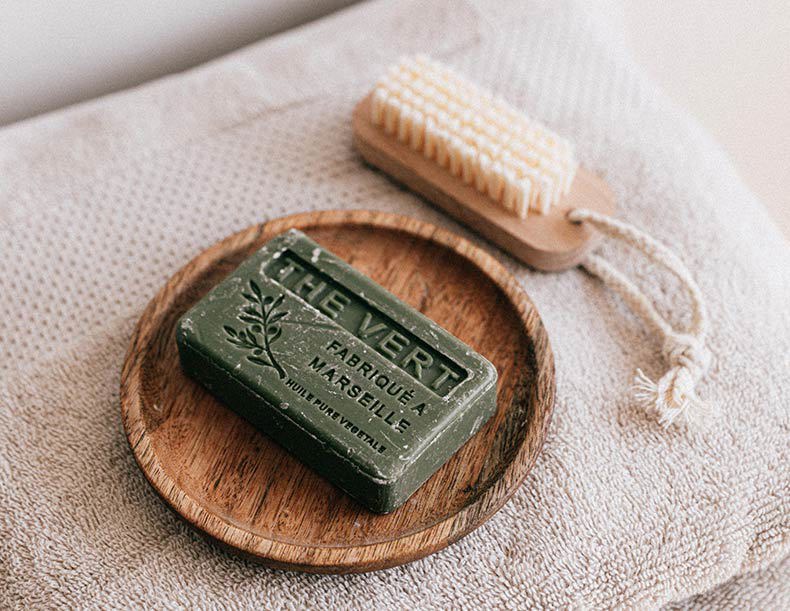There’s no denying that as a nation, we’re becoming eco-friendlier in most everyday aspects of our lives – from no longer using plastic bags when doing the food shop, to using reusable water bottle.
But have you ever wondered how the nation gets on with eco-friendly practices in the bathroom?
We uncovered the positive changes Britain are making with their bathroom beauty and hygiene buying habits – after analysing the nation’s relevant Google Searches over a two-year period.
Revealed: The Nation’s Most Popular Eco-friendly Bathroom Products Over Time |
|||
|
Google Search Term: |
Annual UK Searches (June 2018 – May 2019) |
Annual UK Searches (June 2019 – May 2020) |
% Increase in Google Searches – Highlighting Increased Popularity |
|
‘Reusable Make Up Pads’ |
11,320 |
36,200 |
220% |
|
‘Sustainable Razor’ |
1,170 |
2,800 |
139% |
|
‘Biodegradable Wipes’ |
11,320 |
25,310 |
124% |
|
‘Shampoo Bar Hard Water’ |
680 |
1,490 |
119% |
|
‘Shampoo and Conditioner Bars’ |
10,180 |
17,380 |
71% |
|
‘Reusable Sanitary Pads’ |
35,800 |
59,400 |
66% |
|
‘Toothpaste Tablets’ |
14,050 |
22,700 |
62% |
|
‘Period Cup’ |
70,100 |
109,700 |
56% |
|
‘Bamboo Cotton Buds ‘ |
8,080 |
12,160 |
50% |
|
‘Double Edge Safety Razor’ |
6,320 |
8,590 |
36% |
Read on to discover this positive piece of research.
The Nation’s Most Eco-Friendly Change is Switching is Reusable Make-up Pads
Our research has uncovered in the past two years, the nation’s most eco-friendly bathroom product switch is using reusable make-up pads, as opposed to disposable ones.
Google searches for this term have increased an astonishing 220% in the past two years (from 11,320 to 36,200 year-on-year searches).
Polly Shearer, bathroom specialist here at Drench argues that "more Brits are making a conscious effort to use reusable makeup pads, which may seem like a small change, but is actually quite a large one considering a lot of people wear make-up on a daily basis, and will therefore need to remove it in the evening."
However, it appears that not everyone is making such environmental efforts as, unfortunately, Google searches for ‘single-use cotton pads’ amounted to 50,200 between June 2019 and May 2020.
In Second Place are Sustainable Razors, With Interest Increasing by 139% Over Two Years
The latest statistics indicate that 5.5 million people in the UK were using disposable razors, however, as disposable razors are predominately made out of plastic – they are notoriously difficult to recycle increasing their chances of ending up in a landfill.
However, thankfully it appears that Brits are swapping their razor buying habits for more sustainable practices; Google searches for ‘sustainable razor’ saw the second biggest increase over the past two years, at 139%. Not only that but, searches for another reusable alternative, the ‘double edge safety razor’ also grew by 36% in the same period, making this product the tenth most popular product uncovered.

Biodegradable Wipes Are Winning More Brits Over, With Interest Increasing by 125%
Unfortunately, on the shore of the River Thames in Barnes, London, a whopping 23,000 wet wipes were discovered in July 2019 alone – highlighting the horror of using non-biodegradable wipes.
Furthermore, according to Water UK, 90% of sewer blockages in the UK is made up of wet wipes! Bathroom expert Polly Shearer states that "wet wipes made out of plastic synthetic fibres are a problem as they do not biodegrade or can be flushed. Therefore, biodegradable wipes are recommended as they will limit the amount of toilet blockages."
Biodegradable wet wipes are the answer, and also one that the nation is becoming increasingly accustomed to. Google searches for ‘biodegradable wipes’ have rocketed 124% in the past two years, making it the third most popular eco-friendly bathroom product. However, even though these wipes biodegrade, it’s recommended that you should still not flush them but instead place them in the bin.
In addition, we have also analysed the Google search volume of eco-friendly beauty brands, which revealed the following results:
Revealed: The Nation’s Most Popular Eco-friendly Bathroom Brands |
|||
|
Google Search Term: |
Annual UK Searches (June 2018 – May 2019) |
Annual UK Searches (June 2019 – May 2020) |
% Increase in Google Searches – Highlighting Increased Popularity |
|
‘Foamie Shampoo Bar’ |
1,430 |
7,050 |
393% |
|
‘Saalt Cup’ |
3,730 |
12,310 |
230% |
|
‘Bambaw Razor’ |
1,760 |
4,650 |
164% |
|
‘Edwin Jagger Razor’ |
3,890 |
8,890 |
129% |
|
‘Truthbrush’ |
3,800 |
7,160 |
88% |
|
‘Organicups’ |
33,800 |
52,900 |
57% |
|
‘Georganics Floss’ |
1,950 |
2,830 |
45% |
|
‘Lily Cup’ |
13,480 |
19,500 |
44% |
|
‘Diva Cup’ |
81,000 |
100,800 |
24% |
|
‘Lush Conditioner Bar’ |
10,440 |
11,730 |
12% |
UK Google Searches for ‘Foamie Shampoo Bar’ Have Increased by a Staggering 393%
Our research uncovered that this up and coming brand has seen the biggest increase in Google searches.
They are a producer of shampoo bars, which are ideal if you’re looking to cut down on your plastic consumption. What’s more, research has revealed that shampoo bars are much better value too – with one bar lasting as long as three bottles of shampoo.

Brits are Going Plastic-Free. Period.
Did you know that 200,000 tonnes of sanitary products end up in UK landfill every year? And that most shocking of all, sanitary products flood Europe’s beaches far more than single-use coffee cups, straws or cutlery.
However, on a more positive note, it appears that Britain are buying more eco-friendly period products – featuring four times in the above list of 10 products. That’s 40%!
In terms of actual branded products, ‘Saalt Cup’ (a menstrual cup) has seen the second biggest increase in searches - rising 230% over the past two years. This was then followed by Organicups’ in 6th place with a 57% increase, and then ‘Lily Cup’ saw a 44% growth in Google searches, placing it 8th. Finally, Google searches for the menstrual cup, ‘Diva Cup’, rose 24% positioning it in 9th place.
Want to learn more about making your home eco-friendly? Check out our guide on designing an eco-friendly bathroom.







